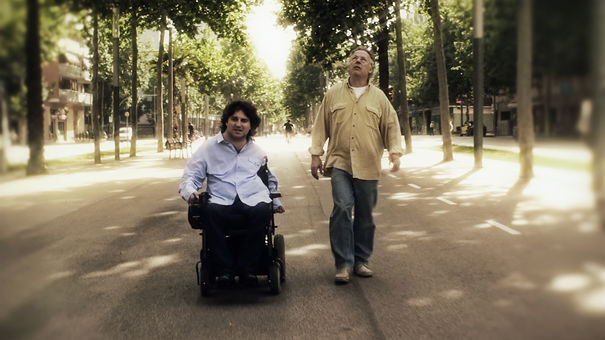Living in Difference
Eduardo Cruz

Vivir y otras ficciones
Simply as image ―visual image and sound image― cinema is a political act. Even if the possibility of political action is denied in the film itself, its very existence constitutes, a priori and inevitably, an ideology. LIVING AND OTHER FICTIONS (2016), by Spanish director Jo Sol, makes of a political act its raison d’être, without ever descending into didacticism or propaganda.
Antonio Centeno, the main character of the film, has already directed the documentary Yes, We Fuck! (2015), about the need to legalize sexual assistance for the disabled. In his film, Jo Sol follows for several days the lives of Antonio, suffering from paralysis in most of his body as the result of an accident, and of his assistant Pepe, a man whose time spent in a psychiatric institution has destroyed his life. The film operates on the borderline of “documentary” cinema, creating a fiction out of “real” elements. This approach lends it poetic possibilities that empower its analysis, as it achieves an unprecedented exploration through cinematography of the ways that “others” inhabit the world. It is a slap in the face that inevitably throws into question our own privileges.
“It’s not that I have a body, it’s that I am a body,” Antonio repeats on several occasions. His struggle is against invisibility and on behalf of the dignity owed to difference within difference. The vision of the film is not so much that of the director as that of Antonio and Pepe, who propose to rethink forms of representation from the bottom up.
(translated by Gregory Dechant)

